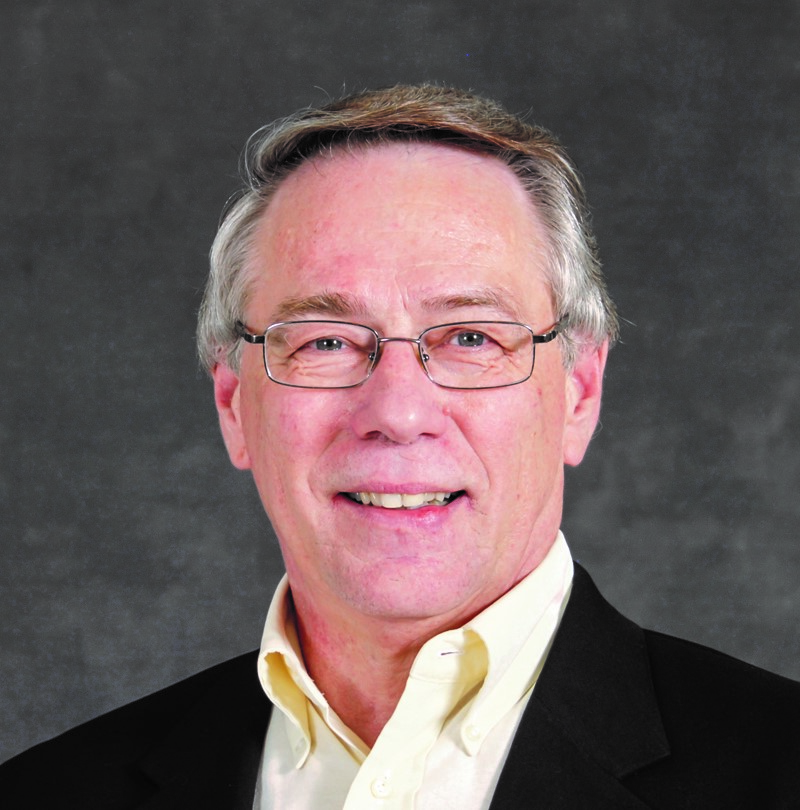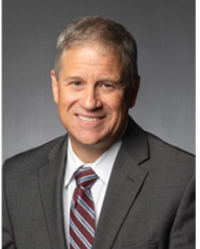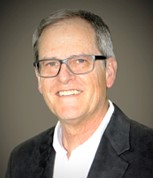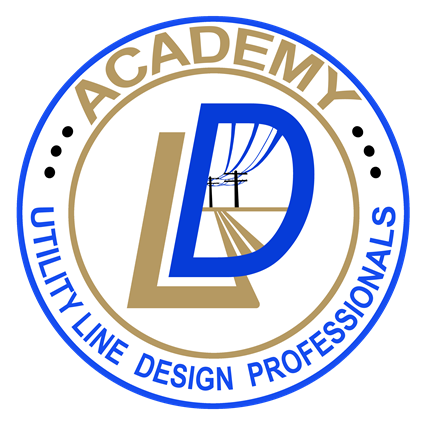Series Overview
Overhead distribution continues to play an essential role for most utilities in delivering electric service to end-use customers. This series of two in-depth virtual courses begins with a comprehensive overview of the planning, design, installation, and maintenance principles and requirements that drive today’s overhead distribution practices. Then, in the second course, learn how to review and improve your utility’s overhead line design criteria and construction standards, make better design decisions, and enhance safety and reliability.
Sign up for courses individually or together for a discounted, bundled rate:
- Virtual: Overhead Distribution Principles and Applications: March 18, 19, 24, 25 26 (5 sessions)
- In-person: Best Practices in Overhead Line Design: May 4 – 7 | Spring Education Institute | San Antonio, TX
*Virtual events will be recorded, and attendees will automatically receive access to the recordings (accessible for 90 days).
Delivery Method/Learning Environment
This hybrid series combines both live online sessions via Zoom (Group Internet-Based) and in-person instruction (Group Live-Based), offering participants the chance to engage directly with expert instructors and fellow professionals.
Each course is designed to be highly interactive, featuring live presentations, real-world case studies, group discussions, polling, quizzes, Q&A segments, and hands-on exercises. With a strong emphasis on practical application, the series fosters a “learn-by-doing” environment that supports meaningful skill development while earning continuing education credits.
Who Should Attend?
Those who work at all levels of overhead distribution design including:
- Engineering managers
- Electric utility engineers and designers
- Design/staking supervisors and technicians
- Consulting engineers
- Crew supervisors and senior lineworkers
These courses are conducted at a practical level and are appropriate for degreed engineers and engineering technicians, as well as non-degreed high school graduates with a general knowledge of the electric utility system.
Course Levels
Varies by class (starts basic, becomes more advanced). No prerequisites; some advance preparation including attending a short orientation session before each course.
This series starts at a basic level and progresses to more intermediate and advanced topics as you move from the first course (on Overhead Distribution Systems Principles and Applications) into the second class (on Best Practices in Overhead Distribution Line Design). Each class varies in depth, so we recommend reviewing individual course pages for specific details.
Overhead Distribution Line Designer Certificate Program NEW!This new program offers flexible learning options, practical applications, and a credential that showcases your professional expertise. To participate, eligible attendees (those who have completed both courses in the Overhead Distribution Systems Series) can enroll in the program for a fee of $295, then must successfully pass an online exam and provide proof of a completed line design project. Stay tuned for more details on registration and certification requirements! |
Prerequisites/Advance Preparation
No prerequisites; some advance preparation including attending a short orientation session before the virtual course.
What to Bring
For virtual and in-person classes: Be sure to have a copy of the 2023 National Electrical Safety Code® — either in print or digital format — for reference throughout the course.
Accreditation
Continuing education credits (CEUs and PHDs) will be provided for each course. See individual course pages for details.
Instructors
 Lead Instructor: R. John Miner, P.E., is an accomplished executive manager and educator with over 50 years of experience in the electric utility industry. He is president of Collaborative Learning, Inc., of Austin, Texas, and has been an APPA instructor for more than 35 years and an instructor for the University of Wisconsin for more than 20 years. Before forming his own company, he worked as C.O.O. for the Austin, Texas, Electric Utility Department (Austin Energy), General Manager of Rochester Public Utilities in Minnesota, and as an assistant professor at the University of Houston. John earned a Bachelor of Science degree in electrical engineering (with honors), and a Master of Science degree in engineering science, both from the University of Toledo. John is a Senior Life Member of the IEEE and is a registered Professional Engineer in the states of Texas and Minnesota.
Lead Instructor: R. John Miner, P.E., is an accomplished executive manager and educator with over 50 years of experience in the electric utility industry. He is president of Collaborative Learning, Inc., of Austin, Texas, and has been an APPA instructor for more than 35 years and an instructor for the University of Wisconsin for more than 20 years. Before forming his own company, he worked as C.O.O. for the Austin, Texas, Electric Utility Department (Austin Energy), General Manager of Rochester Public Utilities in Minnesota, and as an assistant professor at the University of Houston. John earned a Bachelor of Science degree in electrical engineering (with honors), and a Master of Science degree in engineering science, both from the University of Toledo. John is a Senior Life Member of the IEEE and is a registered Professional Engineer in the states of Texas and Minnesota.
 Thomas Black, P.E., is an accomplished executive manager, consultant and course instructor with more than 35 years of experience in the electric and gas utility industries. In addition to working with Collaborative Learning, Tom’s experience includes employment with both municipal and investor-owned utilities across multiple jurisdictions in Colorado, North Carolina, South Carolina and Florida. He teaches a variety of courses on technical topics and also has extensive executive-level experience in managing electric and gas utility systems, including serving as chief energy officer and energy delivery general manager. Tom has also served on the boards of RMEL (now Alltricity Network) and the Colorado Association of Municipal Utilities and is a member of the Institute of Electrical and Electronics Engineers (IEEE).
Thomas Black, P.E., is an accomplished executive manager, consultant and course instructor with more than 35 years of experience in the electric and gas utility industries. In addition to working with Collaborative Learning, Tom’s experience includes employment with both municipal and investor-owned utilities across multiple jurisdictions in Colorado, North Carolina, South Carolina and Florida. He teaches a variety of courses on technical topics and also has extensive executive-level experience in managing electric and gas utility systems, including serving as chief energy officer and energy delivery general manager. Tom has also served on the boards of RMEL (now Alltricity Network) and the Colorado Association of Municipal Utilities and is a member of the Institute of Electrical and Electronics Engineers (IEEE).
 Tom DeBell, P.E., is an independent consultant and course developer and instructor for Collaborative Learning with experience in the electric, water, telecommunications, and gas utility industries. Tom recently concluded a successful 34-year career with Riviera Utilities, a municipal utility in Foley, Alabama. Transitioning from this extensive career in November 2023, Tom founded an executive and leadership coaching company. During his tenure at Riviera Utilities, Tom held various pivotal roles, including engineering and management positions, culminating in his role as President/CEO. In his engineering roles, Tom developed line construction specifications, designed transmission and distribution lines, including both overhead and underground distribution, and collaborated closely with construction crews on major line projects. Tom also specialized in the design and construction of electric transmission and distribution substations, conducted system coordination studies and implemented cascading protection schemes.
Tom DeBell, P.E., is an independent consultant and course developer and instructor for Collaborative Learning with experience in the electric, water, telecommunications, and gas utility industries. Tom recently concluded a successful 34-year career with Riviera Utilities, a municipal utility in Foley, Alabama. Transitioning from this extensive career in November 2023, Tom founded an executive and leadership coaching company. During his tenure at Riviera Utilities, Tom held various pivotal roles, including engineering and management positions, culminating in his role as President/CEO. In his engineering roles, Tom developed line construction specifications, designed transmission and distribution lines, including both overhead and underground distribution, and collaborated closely with construction crews on major line projects. Tom also specialized in the design and construction of electric transmission and distribution substations, conducted system coordination studies and implemented cascading protection schemes.
 Erich Schoennagel, P.E., has cultivated over 45 years of experience in the electric industry. He is a former manager and engineer with CenterPoint Energy and managed the Transmission Project Engineering group. Erich served for 15 years as a member advisor and chairman of the Underground Transmission Task Force for the Electric Power Research Institute until his retirement from CenterPoint Energy. There, he directed research related to underground transmission and superconductivity. He was a board member of the annual TSDOS symposium, and a former member of the American Concrete Institute 336 committee related to foundation design and construction.
Erich Schoennagel, P.E., has cultivated over 45 years of experience in the electric industry. He is a former manager and engineer with CenterPoint Energy and managed the Transmission Project Engineering group. Erich served for 15 years as a member advisor and chairman of the Underground Transmission Task Force for the Electric Power Research Institute until his retirement from CenterPoint Energy. There, he directed research related to underground transmission and superconductivity. He was a board member of the annual TSDOS symposium, and a former member of the American Concrete Institute 336 committee related to foundation design and construction.
Disclosure: The instructors have no proprietary or financial interests in any products, services, or materials discussed in this course.
Questions?
- Registration/Billing: Registration@PublicPower.org
- Schedule/Content/Accreditation: Academy@PublicPower.org
Held in partnership with:
Collaborative Learning, Inc., and the Academy for Utility Line Design Professionals


Registration
Register now!
Registration Fees
Save $300 when you register for both classes!
Registration is for individual participation. If you have multiple people interested in attending, group discounts are available.
| Members* | |
Overhead Distribution Systems Series Both Courses (save $300) | $2,990 |
Overhead Distribution Systems Principles & Applications Virtual: March 17-19 & 24-26 | $1,495 |
Best Practices in Overhead Distribution Line Design In-Person: May 4-7 (San Antonio, TX) | $1,795 |
| *Non-member pricing is double the member rate. |
Group Discounts
Save money when your organization registers five or more people for the same class or the bundled series. The larger your group, the more you save! Registrations must be submitted on the same order (at the same time) to qualify for the group discount; discounts cannot be retroactively applied to previous orders.
If you need assistance, contact Registration@PublicPower.org.
| Number of registrants | Individual Courses | Discount (per person) - Bundled Series |
| 1-4 | n/a | n/a |
| 5-9 | $50 | $100 |
| 10-14 | $100 | $200 |
| 15-24 | $150 | $300 |
| 25+ | $200 | $400 |
Cancellations/No-Show/Refunds/Substitutions
Registrants who cancel in writing at least 7 days before the first day of a course are entitled to a refund of their registration fee, minus a $100 cancellation fee. Registrants who cancel after that will not receive a refund, but attendee substitutions will be allowed for this event only. Registrants and no-shows who do not cancel at least 7 days before the course start date are responsible for the full registration fee and are not entitled to a refund.
Cancellation deadlines:
- Overhead Distribution Systems Virtual Series (both classes): Cancellations must be received on/before March 11
- Overhead Distribution Principles and Applications (virtual): Cancellations must be received on/before March 11
- Best Practices in Overhead Distribution Line Design (in-person): Cancellations must be received on/before April 25
Cancellation requests should be made through your My.PublicPower portal, or addressed to: Registration@PublicPower.org
Accreditation & Event Policies
Learn more about APPA’s Accreditation and Event Policies or contact APPA’s Education Team with questions Academy@PublicPower.org.
Code of Conduct
All who register to participate, attend, speak at, or exhibit at an APPA Event, and all participants in APPA committees, work groups, courses, or other APPA groups, must agree to comply with this Code of Conduct (review and acceptance of the Code is included in the registration process).
Questions?
- Registration/Billing: Registration@PublicPower.org
- Schedule/Content/Accreditation: Academy@PublicPower.org
Accreditation
Earn While You Learn!
Participate in live virtual programs to earn IACET Continuing Education Units (CEUs), Professional Development Hours (PDHs) and NASBA Continuing Professional Education credits (CPEs). Participate in live virtual programs to earn IACET Continuing Education Units (CEUs), Professional Development Hours (PDHs) and NASBA Continuing Professional Education credits (CPEs)—credit availability, completion requirements, and number of credits vary by course and are confirmed with attendees upon registration and before and during a course.
Learn more about APPA’s Accreditation and Event Policies here.
Requirements for Successful Completion: Virtual
Registration is for individual access, so each person participating must register. If you have multiple people interested in attending, group discounts are available. To receive continuing education credits for live learning events, attendees must meet the requirements for successful completion which include:
- Attendance: Individuals must attend at least 90% of all live sessions (based on electronic timestamps in Zoom).
- Active participation: Engage in learning event activities (tracked electronically).
- Activities vary by class: Active participation in class will include engagement activities such as: Zoom polling/check-in questions, reactions and chat box contributions, and knowledge-check quizzes (all tracked electronically). There may also be small group breakout sessions, in-class exercises, and Q&A sessions.
- Information on participation requirements will be provided at least 24 hours before (and at the beginning of) class.
- Activities vary by class: Active participation in class will include engagement activities such as: Zoom polling/check-in questions, reactions and chat box contributions, and knowledge-check quizzes (all tracked electronically). There may also be small group breakout sessions, in-class exercises, and Q&A sessions.
- Online evaluation: Each person must complete an online evaluation after the course concludes (tracked electronically).
Important Notes
- Individual Registration: Each participant must register separately and will receive a unique Zoom login link. Attendees should join from their own computer to fully participate in discussions and exercises. Individual Zoom login links will be sent 24 hours before the course. Group discounts are available for multiple attendees.
- No Partial Credit: Credit cannot be awarded for partial attendance.
- Completion Certificates: Certificates will be available within two weeks of course completion via your APPA user portal (instructions provided) for those who meet the criteria for successful completion.
- Session Recordings: All virtual sessions are recorded (unless otherwise noted). Attendees will receive access within one week of the final session. Recordings remain available for 90 days, but continuing education credits require live attendance.
Requirements for Successful Completion: In-Person
- Daily Sign-In & Full Attendance: Attendees are required to sign in each day and be present for the entire duration of the course. Active participation throughout is expected.
- No Partial Credit: Credit will only be awarded to those who complete the full course. Partial attendance does not qualify.
- Attendance Monitoring: Attendance is tracked by both the course instructor and an APPA staff member.
- Course Evaluation: Participants must complete an online evaluation at the end of the class.
- Certificate Access: Completion certificates will be uploaded to member profiles on the APPA website for those who fulfill all requirements.
Guidelines for Group Participation in Virtual Events
- Individual Logins Recommended: If a group joins from a conference room, each participant should log in individually from a laptop to meet attendance and participation requirements.
- If Individual Logins Are Not Possible:
- Designate one point of contact for the group.
- Email Academy@PublicPower.org before the event with:
- Name of the person responsible for tracking attendance and participation (APPA can provide a sample tracker).
- Submit the completed attendance record to APPA within 2 business days after the event.
- Ensure each participant completes the required online evaluation.
Accreditation
What educational credits are available?
You can earn the following kinds of continuing education credits for attending live sessions — provided the Requirements for Successful Completion noted above are met:
Continuing Education Units (CEUs): The American Public Power Association is accredited by the International Association for Continuing Education and Training (IACET) and is authorized to issue the IACET CEU. For information regarding certification status, attendance requirements and obtaining attendee transcripts, contact Academy@PublicPower.org. Verify our IACET Accreditation.
Professional Development Hours (PDHs): The American Public Power Association’s educational practices are consistent with the criteria for awarding Professional Development Hours (PDHs) as established by the National Council of Examiners for Engineering and Surveying (NCEES). Course eligibility and number of PDHs may vary by state.
Questions?
- Registration/Billing: Registration@PublicPower.org
- Schedule/Content/Accreditation: Academy@PublicPower.org
Additional Information
Format and Log-In Information
- The Overhead Distribution Systems Principles & Applications course is delivered in a Group Internet-Based format using the Zoom meeting platform – March 18-26.
- The Best Practices in Overhead Distribution Line Design course is delivered in a Group Live-Based format – May 4-7 in San Antonio (Spring Institute).
Communication
- Within 24 Hours of Registration: You’ll receive a confirmation email with preliminary details about your course.
- 24 Hours before the first virtual session
Your Zoom login link will be sent from APPA Academy’s Zoom account (no-reply@zoom.us)
A final logistics email will also be sent to help you prepare for the session
One week before the first in-person session
Attendees will receive a logistics email outlining the onsite details for the Spring Education Institute.
If you don’t receive these emails, please contact Academy@PublicPower.org
Course Access and Materials
- Zoom links: Zoom log in credentials will be sent out 24 hours before the start of the orientation session.
- Course materials: Attendees will receive access to course materials the day before each session through the "Documents" section of their My.PublicPower.org user portal.
- Recordings: All sessions will be recorded and can be accessed through your user portal as well (within a week of the last class in the program), in case you can’t attend the live versions. Recordings will be accessible for 90 days after the last session. Note: Continuing education credits can only be issued for attending live sessions.
Technology Requirements: Virtual
- Individual Computer Access: Each attendee must join from their own computer to fully engage in discussions, exercises, and breakout sessions.
- Group Participation: If you plan to attend as part of a group in a shared conference room, please contact Academy@PublicPower.org for coordination.
- Zoom Platform: A reliable internet connection is essential for accessing the Zoom-based sessions.
- Audio & Webcam: You’ll need to enable computer audio to listen and speak during the sessions. A call-in option will also be available. A webcam is required to actively participate in group discussions and breakout activities.
- Kahoot! App: Instructors will use the Kahoot quiz app during and after live sessions. Please download the free app from the App Store (iOS) or Google Play (Android) on your mobile device. You’ll receive a game PIN for each quiz.
What to Bring
- Overhead Distribution Systems: Principles & Applications: Virtual
- Required to have access to: A copy of the 2023 National Electrical Safety Code (NESC) to reference during class
- Best Practices in Overhead Distribution Line Design: In-person
- Required to bring: A scientific calculator or smart phone calculator app
- Required to bring: A print copy (or have access to a digital copy) of the 2023 National Electrical Safety Code (NESC) to reference during class
- Encouraged to bring: Interesting underground distribution photos as well as their underground distribution design guides and standards to share
New to Zoom?
If you haven't participated in a Zoom meeting before, please download the Zoom web client from the Zoom Download Center. This will enable you to access all of the Zoom tools and functionality vs. using the web version. Then, visit Zoom.us/test to ensure you are able to join a meeting.
If you are not able to download the Zoom web client, you can still participate via your Internet browser. We recommend using Chrome for the best results.
Privacy and Security
The American Public Power Association takes your privacy and security very seriously. For this reason, we have put the following security measures in place for this course:
- A random Meeting ID
- Password-protected
- Enabled waiting room to screen meeting participants
- Restricted screen sharing to hosts only
Questions?
- Registration/Billing: Registration@PublicPower.org
- Schedule/Content/Accreditation: Academy@PublicPower.org

